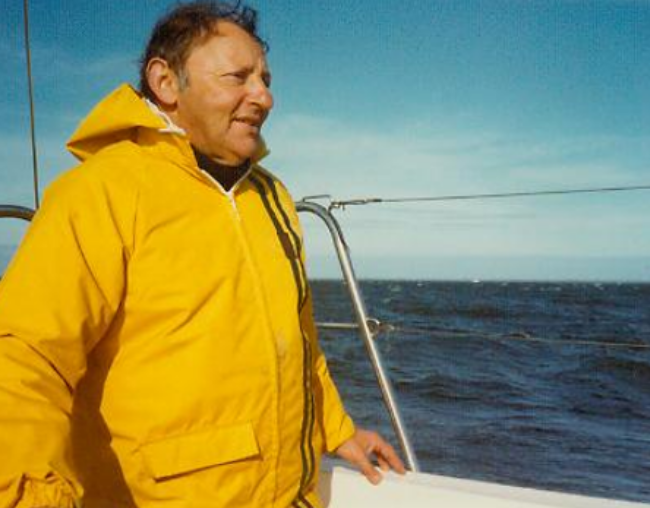Last night, the night of the Passover Seder, I was very aware that this was the first time in 90 years that I have not celebrated the festival. Mind you, I’m very – shall we say ‘flexible’ – about dates and times. There’s no evidence about exactly when the Exodus happened – was it a Monday evening some time in 1300BCE or might it have been Tuesday the following year?
The important thing for me is the remembering itself and the family bonding around my table as we consider the implications of our heritage. Online via Zoom or Skype absolutely not the same. So why not Passover in July or October or whenever the virus is overcome? I will wait. My son, Dan, has planted daffodils in bowls in anticipation of renewal so maybe we could combine two festivals, Hanukkah and Pesach? We’ll see.
I’m the matriarch (well, why not use a pish posh title?) of a very tiny family and since my husband Alan died I have thought there was a definite responsibility to at least inform my children and grandchildren about their heritage, even though some of them have other heritages as well. Al and I had very ambivalent attitudes towards religion and if there’s one thing I do regret it’s that I never had a ‘deep and meaningful’ with him about what he really believed – if anything. One of his favourite sayings was, ‘Leave your mind alone’.
He attended synagogue every Saturday and had a real friendship with Ehud Bandel, the Israeli rabbi who with his wife Avital came to lead our congregation with such compassion (and terrific toe-tapping songs). Ehud’s eulogy to Alan is a treasured item. Maybe I’ll print and frame it so the family may read it when they are allowed to visit again.
But I think the synagogue was important to Al for reasons other than belief: in this new Masorti congregation he was given respect for the first time in his life. In many ways this helped with the pain of his appalling childhood as an abused street kid in Bondi – yes, Bondi! This was ‘punkt’ at the time when the famous Dr Fanny Reading, who so impacted the life of others, was in practice just up the road and somehow never picked up on this little motherless boy.
So, Al’s identity was complex: his perfect weekend consisted of Friday night ‘shabbat’ dinner with the family, Saturday morning at ‘shul’ and ‘Sat’day arvo’ sailing on Port Phillip Bay. Here’s a poem he wrote about this juxtaposition, it was published in the now sadly defunct magazine ‘Generation’ and as I re-read it now I feel very proud of his work – it’s a good poem and captures him well:
MY SABBATH
On Saturday I wear my shirt with nautical flags on it.
In my street other Jews are wearing their signals too.
Their signals speak to me in sable semaphore
of how my Sabbath shuns synagogue for sea.
They frighten me with their testamental blackness,
like reproachful gannets that line the breakwater
as my sails belly in the first swelling wave –
an admonitory minyan streimeled with feathers.
It’s my Sabbath too I say to the whitefaced side-curled child
but not to his father who worries my conscience
nor his mother whose sheitl is so set, the wind that drives
my boat could not stir her waves. To the light-house we go.
They to theirs, me to mine. A boat is a holy vessel,
an ark of triumph that bows down only to the elements.
On Friday night I pray before my barometer. Then cut the
Challah, salt it, pass it around: blessed art thou O Lord
who brings forth bread from the earth (and kindly winds for
Saturday that won’t give the testamental ones all the
righteousness). Tomorrow, tomorrow, my talit shall be a sail
around my shoulders, its ropes the side-curls of a white-faced boy.
Al suggested – no, it wasn’t a suggestion, it was something he really wanted – that we join this new congregation that had none of the gender problems associated with the orthodox and seemed to be more open to the contemporary world. My lack of faith, belief, spirituality all made me extremely reluctant, but for his sake I felt I had to go along to those initial meetings that eventually set up Melbourne’s first Masorti shul.
On Saturday mornings I would see him off at the door with the quip, ‘Have a nice pray, darling’ and return to bed with the newspaper. Around midday he’d return to hastily re-invent himself as Al the sailor all ready to join what we in the family rudely called ‘Dad’s Navy’ – a delightful group of middle-aged men who would sedately sail from St Kilda Marina across the Bay to Williamstown and back. When the skipper allowed it, Al was given the wheel – a huge thrill; and if they were lucky, dolphins would play around the boat. The skipper’s wife would brew afternoon tea in a battered little aluminium teapot that now sits in my garden and is host to a geranium.
And now? I rarely go to services – only on Al’s ‘yortsayt’ (I can’t abide the Germanic spelling ‘yahrzeit’ and much prefer the Yiddish). Occasionally on Rosh Hashanah. Never on Yom Kippur for Al was born and his mother died on that day in 1928 – she bled to death after a home birth and all the local doctors were busy praying so there was no one to help.
This year because I am virus vulnerable I didn’t go to Synagogue at all, but our dear son Toby took me to the Jewish Memorial Rose Garden at Springvale so that I could leave shells on Al’s gravestone – for my sailor.


Comments are closed.